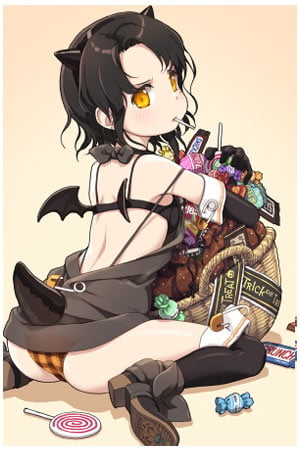When you study a foreign language, it’s natural to want to learn the “naughty” words first, but there’s just one problem: most of profanity you’re used to doesn’t exist in Japanese. The most common insult is baka (“stupid”), and while the S-word does exist (it’s kuso, in case you were wondering), there’s no social stigma attached to it, and the word is regularly used in children’s anime. That’s not to say there aren’t words that have an ecchi aspect to them, of course. Whenever I go to an udon restaurant I always do a double-take at seeing bukkake udon on the menu…but of course it’s just a normal noodle dish with various ingredients tossed on including grated daikon radish, and it’s naughty meaning arrived later. (My wife often trolls me by buying bukkake udon for my lunch if I don’t specify what I want to eat.) If you like your gyudon beef bowl with extra juice you can ask for it つゆだくtsuyu-daku, or dripping with juice…though this word has developed a certain slang meaning, too. Kanji are made up of “radicals,” elements that help define meaning, and one that appears along the bottom of characters like 思 (thought) or 恋 (romantic love) is called shita-gokoro…but this word also means “lower heart” and describes someone with less-than-pure intentions towards someone else. Okazu is an interesting word literally meaning “that which is eaten with rice,” e.g. the main dish of any meal…though it also carries the slang meaning of “materials or fantasies used to assist in solo stress relief.” In Italy and other countries you say “chin chin!” when making a toast, but this is a cute word for “penis” in Japanese. The single worst word in Japanese is manko, referring to female genitalia, and everyone avoids saying this word…though inevitably you’ll need to refer to the number 10,000 (man) with a counter for small objects (ko), no doubt in front of a pretty girl, and will likely embarrass yourself.

There’s a natural tendency for some words and concepts to bring out our ecchi side.















